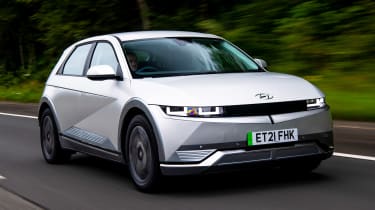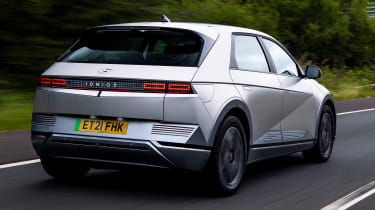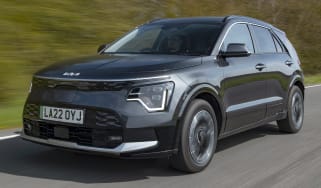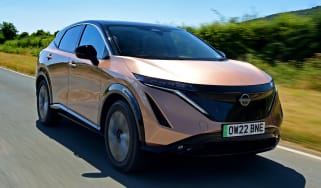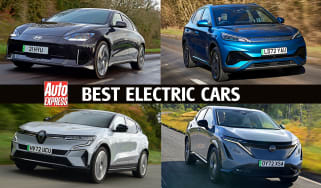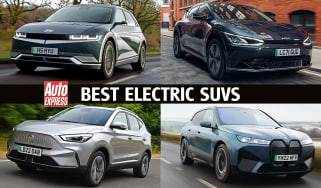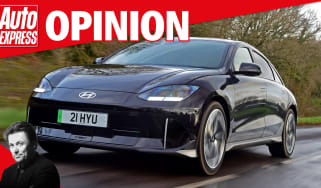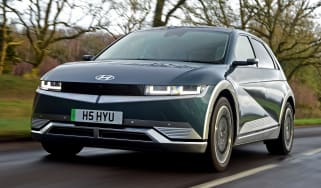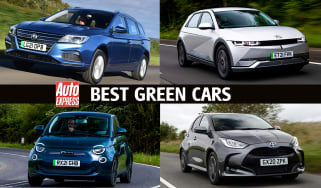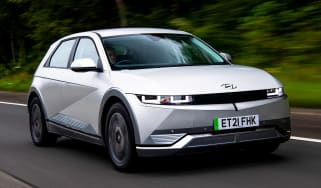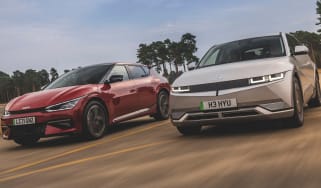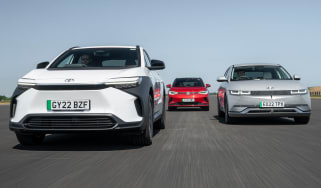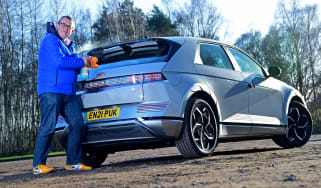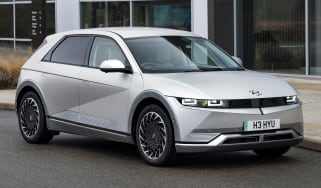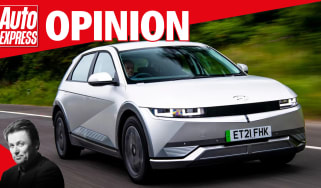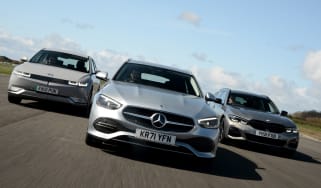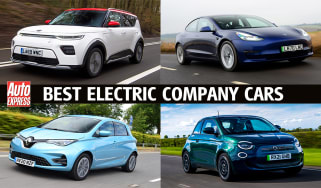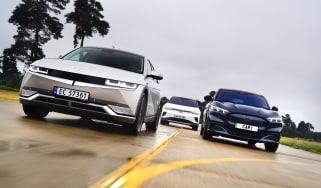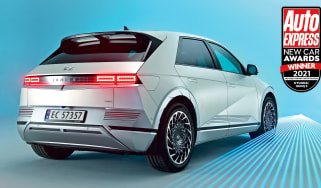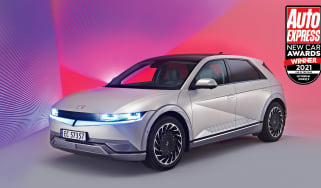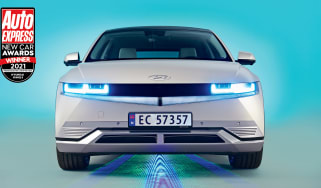Hyundai Ioniq 5 review
The retro-modern Hyundai Ioniq 5 is a supremely talented all-electric family car that’s hard to fault

PCP finance available
The Ioniq 5 family hatchback represents a real shift forward in Hyundai’s ability to chase down premium electric rivals, helping to persuade EV buyers who are motivated by stylish design, great on-board tech and practical range and charging speeds, to invest in the Korean brand.
With concept car looks that may not be to everyone's taste, there's no denying that the Ioniq 5 brings a sense of cool that sets it apart from the pack, while the manufacturer has added to it's strong kerb appeal with competitive pricing, generous standard kit and advanced active safety systems. We named it our 2021 Car of the Year, so if you’re thinking of a new purchase and you have the means, then the Hyundai Ioniq 5 is one of the best cars you can buy.
About the Hyundai Ioniq 5
Over recent years, Hyundai, along with its subsidiary brand Kia, has been at the forefront of producing well-built, practical electrified family cars. Mild- or plug-in hybrid tech is offered on models such as the Ioniq and Kona, as well as the bigger Santa Fe SUV, while the former two cars are also available with the benefits of zero-emission, all-electric drive.
But, pioneering and innovative auto makers must continue to push things forward, or risk falling into EV obscurity, and that is exactly what Hyundai has done with its Ioniq 5 hatchback/crossover. In a move away from the architecture used so far across its electric, hybrid and combustion-engined models, the Ioniq 5 is Hyundai’s first car to use its new Electric Global Modular Platform (E-GMP) and, as a foundation for the company’s next-level EV tech, it’s mightily impressive.
More reviews
At launch, two battery choices were available across the range along with three individual power outputs: a 58kWh battery and a single 168bhp motor driving the rear wheels provided the entry point to Ioniq 5 ownership, while the next step up included a 73kWh version paired with a 214bhp rear-mounted motor. The top-spec option comprised the same 73kWh battery, but with a second motor at the front giving a total of 301bhp and a meaty 605Nm of torque.
An appealing lineup for sure, although Hyundai has already raised the bar; the entry 58kWh model remains, but a new 77.4kWh battery is now available that offers increased range and a little extra power over the 73kWh unit it replaces. The 77.4 kWh rear-wheel-drive car delivers 225bhp, while opting for the all-wheel-drive version brings 321bhp.
It's a smart move from Hyundai, as buyers thinking of investing in a capable family EV now have many top quality options to consider. The Volkswagen ID.3 hatchback might suit smaller households, although the ID.4 is a more direct rival to the 4.6-metre long Ioniq 5 and offers more space and day-to-day practicality than its compact sibling.
Meanwhile, Ford has come up with its own brilliant all-electric model, the Mustang Mach-E, which provides the typical blue oval USP of a great driving experience, as well as being easy to live with. The Kia EV6 has a sportier feel compared to the Ioniq 5, although uses the same architecture and battery technology, while the Skoda Enyaq is another excellent electric family car, as is our 2022 Car of the Year - the Nissan Ariya.
Hyundai no longer offers the entry SE Connect trim for the Ioniq 5, leaving Premium, Ultimate and the top-spec Namsan Edition on the price list. Standard kit is good with 19-inch alloy wheels, LED headlights, front and rear parking sensors, climate control and smart cruise control all included, while inside the cabin there’s a wireless smartphone charging pad and two 12.3-inch displays - one covering the infotainment and the other a digital instrument cluster providing key info for the driver.
A battery heater and conditioning function is now available for 2023 model year cars - it's a practical feature that manages battery temperature while on the move and helps to improve real-world charging performance. Other additions include digital rear and side mirrors, along with Hyundai's V2L system which allows you to charge portable devices, camping kit or even another electric vehicle.
The Ioniq 5 range starts from around £43,000 and rises to more than £57,000. An Ultimate-spec car, particularly when paired with the most powerful 321bhp dual-motor setup, brings the Ioniq 5 firmly into Tesla territory, and will also provide food for thought for those considering an Audi Q4 e-tron in a top Edition 1 trim.
For an alternative review of the Hyundai Ioniq 5, visit our sister site drivingelectric.com...

